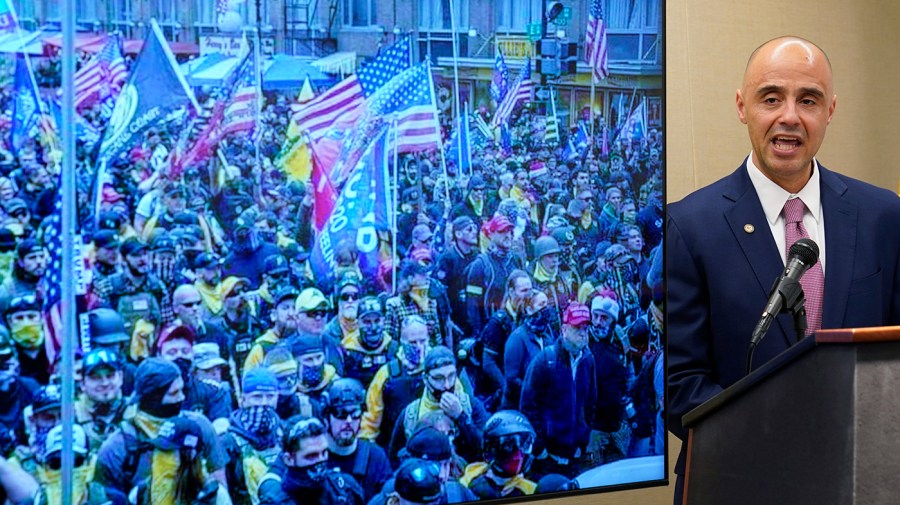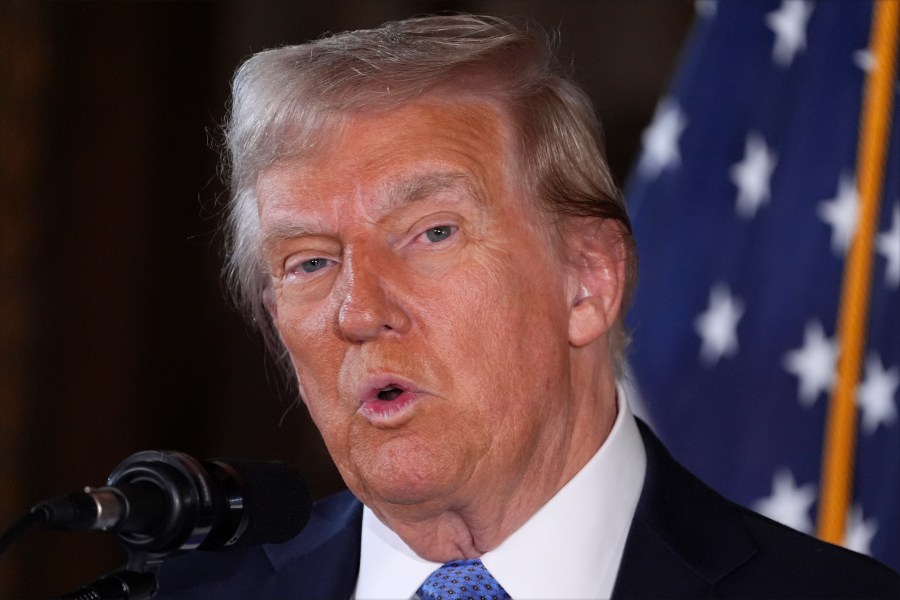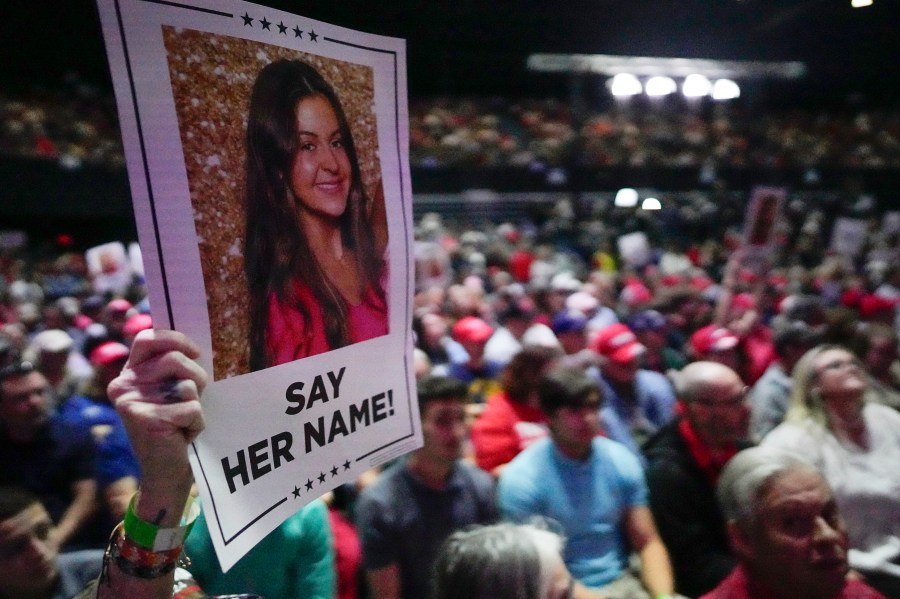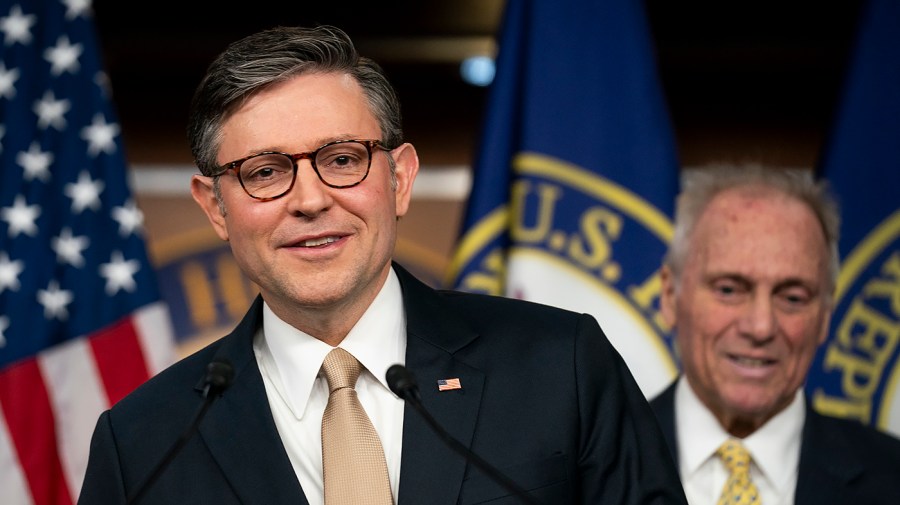
Legacy of Jan. 6 prosecutions in flux with Trump presidency on horizon
The Justice Department’s prosecution of the Jan. 6, 2021, Capitol attack — hailed as one of the “largest, most complex, and most resource-intensive investigations” in its history — could soon go out with a fizzle.
President-elect Trump has vowed to grant clemency to those who descended on the Capitol as Congress certified the 2020 election win of his Democratic opponent, President Biden, describing them on the campaign trail as “political prisoners” and suggesting some pardons could be issued within hours of his return to the White House.
A sputtering end to the historic probe poses questions about its enduring legacy and the aftershock effect on prosecutors, judges and defendants alike.
“That legacy will be determined by what President-elect Trump does about these pardons,” said Rizwan Qureshi, a former federal prosecutor with the U.S. attorney’s office for the District of Columbia.
Nearly 1,600 people accused of participating in the riot have faced charges, with more than half of them pleading guilty before trial and hundreds more being convicted by a jury or judge. Their charges were underpinned by tens of thousands of hours of video and photo evidence.
To prosecute the attack, the Department of Justice (DOJ) fully mobilized.
Prosecutors from around the country were recruited to help D.C. prosecutors handle the massive caseload, requiring unprecedented coordination between different federal agencies and within D.C.’s broad U.S. attorney’s office itself.
“By some accounts, it was the largest crime scene in American history,” said Alexis Loeb, a former deputy chief of DOJ’s Capitol siege section who joined the effort from the Northern District of California. “Simply organizing that evidence was a novel challenge, and of course, we were also dealing with an unprecedented attack on the Capitol, so that ended up raising all sorts of novel statutory questions.”
The manpower needed to review thousands of hours of video, zero in on suspects and determine appropriate charges before taking hundreds of defendants to trial was “incredible,” said Barbara McQuade, former U.S. attorney for the Eastern District of Michigan.
“In some ways, it was a 1,600-man manhunt, and they systematically were able to identify and prosecute a large number of people in a fairly short period of time,” she said.
It’s unclear how many defendants Trump plans to grant clemency. The president-elect has said there could be “some exceptions” to his pardons but has also not yet publicly ruled any out — including for more serious offenders who assaulted police or plotted to stop the 2020 election certification.
Sweeping pardons would likely have a “significant impact” on morale among federal prosecutors for whom prosecuting the Capitol riot has been an “around-the-clock effort” since that day, Qureshi said.
It might also make it more challenging to bring cases involving political violence in the future, especially if prosecutors fear retaliation, he said. Trump’s pick for U.S. attorney general, Pam Bondi, has said the “prosecutors will be prosecuted” and “the investigators will be investigated.”
“Prosecutors are going to be, for lack of a better term, more gun-shy about exercising the power of the law to hold people accountable,” the former prosecutor said, suggesting that would-be prosecutors with diverse backgrounds might select the private sector over the Justice Department.
“They’re not going to do a job that pays less, where they put all their efforts into it, and they could find themselves on the other side of the ‘V’ in a criminal matter,” he said.
Since Jan. 6, those hundreds of cases have landed before judges on the U.S. District Court for the District of Columbia. They have uniformly condemned the riot, with many speaking out since Trump’s election about the true nature of the attack.
U.S. District Judge Royce Lamberth, a Reagan appointee, wrote in court filings last month that he has “nothing to say” about Trump’s promised pardons but that the judges who have presided over “hundreds of trials” and read “hundreds of guilty pleas” know that the conduct that day ranged from aimless wandering to efforts to “derail the onward march of American democracy.”
“No matter what ultimately becomes of the Capital Riots cases already concluded and still pending, the true story of what happened on January 6, 2021, will never change,” Lamberth wrote.
U.S. District Judge Amit Mehta, who oversaw the seditious conspiracy trials of members of the right-wing militia group Oath Keepers, said at a sentencing that the prospect of the group’s founder, Stewart Rhodes, being pardoned “ought to be frightening to anyone who cares about democracy in this country.”
Many Jan. 6 defendants have been emboldened by Trump’s election victory, pushing back at judges and taking risks they might otherwise not have if the former president were not set to return to the White House later this month.
“Already some of them are coming in saying, ‘Put off my sentence, don’t sentence me, because Trump’s going to pardon me,’” said Mary McCord, former acting head of the Justice Department’s National Security Division and a longtime federal prosecutor. “And they’re not expressing remorse. They’re saying, ‘I’m about to get a free pass.’”
Many rioters have asked for delays in their trials or sentencings, citing future pardons, which judges have largely denied. Others have asked for permission to enter Washington to attend Trump’s inauguration; only one such request has so far been granted, for a misdemeanor defendant.
Some defendants have adopted confrontational postures.
Guy Reffitt, the first Jan. 6 rioter to face trial, defiantly told a judge during his resentencing last month that his “feelings” about Jan. 6 were alleviated by Trump’s election win. As he walked out of the courtroom to be returned to prison, a different rioter, Brandon Fellows, called out: “Guy, you’ll be out soon,” according to Politico.
Enrique Tarrio, ex-national chair of the Proud Boys, decided to testify in defense of a retired police officer accused of leaking law enforcement intelligence to the right-wing extremist group leader — but only after Trump’s victory. He gave combative testimony.
In handing down Capitol riot sentences, judges have explicitly pointed to the need for deterrence and to prevent the normalization of political violence.
That’s especially true for members of extremist groups like the Proud Boys and Oath Keepers, whose leaders were convicted of seditious conspiracy and given some of the longest sentences resulting from the riot, said Jacob Glick, former investigative counsel for the House committee that investigated the Capitol attack. Glick led the panel’s probe of far-right domestic extremism.
“When I was interviewing them, they made very clear that they felt welcomed to march on the Capitol that day, and they felt like it’s not just their obligation, but their calling,” Glick said. “And so, to be pardoned, would I think cause many people to double down on that belief.”
Even if Trump issues vast pardons, the evidence that underpinned those cases and convictions will remain. The Justice Department wrote in recent court filings that accepting any pardon “necessitates a confession of guilt.”
“No matter what happens ultimately with the convictions, the public filings in the cases are extremely comprehensive,” Loeb said. “I think the filings create a detailed record of the truth about what happened that day.
“Those filings will still be there,” she said.



